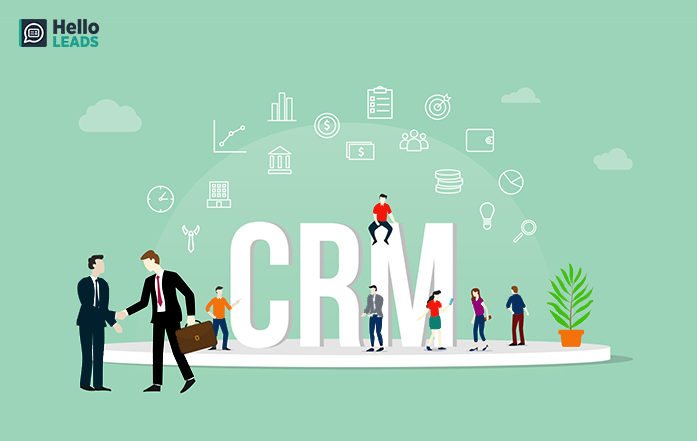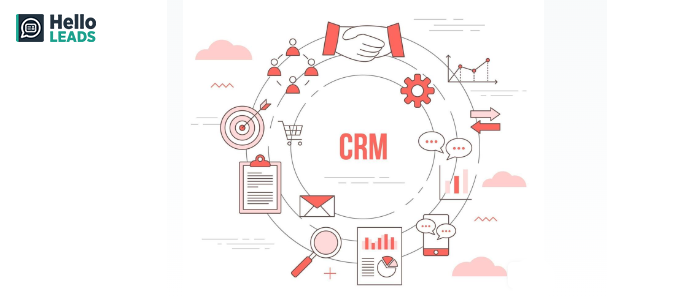
Are you looking to streamline your sales process? Your sales process is an integral part of your business’ success. Entrepreneurs strive to serve their consumers efficiently and cost-effectively. Enhancing your organization’s operations, simplifying processes, and increasing efficiency are vital. The most effective business practices require seamless operations, so you must improve your company’s operational efficiency. By optimizing your business processes and operations, you will become more effective over time and achieve better success.
Streamlining the work process and optimizing workflow requires a thorough review of the whole operation. This can often be achieved, by eliminating complicated or unnecessary procedures. From updating data sheets to hiring skilled employees, your firm’s business processes and routine activities must be completed regularly. When you optimize these business operations and achieve success, you will increase your company’s productivity. To boost efficiency in your business, it is essential to understand what ‘streamlining’ is and how it can benefit your business.
What is streamlining and its benefits?
Streamlining is the process of simplifying or eliminating unnecessary tasks in an organization or business so that it can operate more efficiently. To streamline processes, modern techniques, technology, and other approaches are needed.
You can free up time and work by streamlining your organization’s daily processes. When you streamline your processes and workflows, your business or organization will experience the following benefits:

1. Increased cost efficiency
With streamlined software, you can reduce the amount of paper your workplace uses and reduce staffing costs. This will likely save your business money, so you can allocate funds elsewhere.
2. Improved productivity
When processes are streamlined and employees understand their daily tasks and expectations, they will be more productive. Taking unnecessary tasks off their plates will allow them to focus more on quality.
3. Improved communication
Better communication between departments and better tracking of completed tasks can be made possible by streamlining management systems. By communicating with each other more efficiently, employees will be able to complete assigned tasks more quickly.
4. Better time management
You are more likely to be able to manage your time better if there are fewer tedious tasks for you and your employees to complete, and you will have more buffer time between tasks to complete those that are most important to you.
5. Minimize risk
A business with streamlined processes has a greater level of transparency. From one location, you can track your employees’ progress and spot mistakes or missed deadlines. Additionally, streamlining may assist you in meeting business obligations, such as complying with certain regulations or delivering products or services on time.
A CRM streamlines your sales process in five ways.

1. Enhance the marketing-to-sales handoff process
When leads are handed off from marketing to sales, they often fall through the cracks. It’s simple and typical for leads to drop out of the sales funnel during the handoff from marketing to sales, whether it’s because your sales and marketing teams aren’t communicating or your sales staff are simply too busy to follow up on all the leads that marketing passes over.
Most of these issues with sales dropoff can be resolved with a CRM.
Notify your sales team as the first course of action. A CRM can automatically notify your sales team of the move when the marketing team determines that a lead is ready to go to sales. This is a terrific approach to get rid of lost leads that are lost because no one contacts them and they leave the cycle.
Helping your sales team determine right away if that lead is viable, is the next step. Your sales staff can see exactly where a lead is in the buying process thanks to a CRM. The sales team will have a solid notion of how warm and prepared the lead is, to make a purchase, because the CRM will keep track of every interaction marketing has with that lead.
This enables your sales representatives to quickly determine whether a lead is suitable for them or if they would prefer to send them back to marketing. Transferring the lead back down to marketing is also a breeze with a good CRM. Your sales representative has to only change the lead’s assignment or classification, returning it to marketing’s “to nurture” category. For many businesses, a sizable portion of marketing leads does not result in sales. Although sales and marketing alignment helps to some extent, a CRM is also a very helpful tool to ensure that no one loses track of those leads.
Implementing a top-notch CRM not only ensures that those leads make it through the sales process but also brings your sales and marketing teams together and helps them better understand what each team needs to succeed.
2. CRMs Increase Prospect Visibility in the Sales Funnel
Your sales staff is occupied. There is no avoiding it. Your sales staff is working hard to call every lead your marketing team sends, determine which of your services or products is the greatest fit for each, and then complete the real nurturing and closing process. By providing better visibility on all of those prospects throughout the sales funnel, a CRM streamlines your sales process.
CRMs make it simple to understand where each prospect is at any given time in the sales funnel. Your sales team is undoubtedly letting leads fall out of the sales funnel if they are managing their leads via a post-it note system, a notebook, or any other approach. And we’re all only human, therefore it’s not their fault!
However, a CRM can assist in solving this issue and make it simple for your sales staff to give warm leads priority over leads that still require some nurturing. Prioritize leads and group them. The majority of high-quality CRMs let you divide leads into groups based on their level of qualification and position in the sales funnel. Your sales staff won’t even have to consider which leads to call first because they are listed right at the top of the page.
Quickly determine who has contacted which leads and when. Your sales agents will be able to quickly identify who has contacted which lead and when thanks to a high-quality CRM, which also provides other important visibility benefits. They’ll be able to tell which of your materials a lead has already seen and what details they might still require before deciding. A good CRM increases visibility, which improves the effectiveness and efficiency of the sales process. Your sales staff can focus more time on what they do best, which is closing sales when your leads are automatically organized by industry, job title, interest level, and other factors.
3. Identify as many repetitive tasks to automate
Every firm has plenty of boring, routine tasks to complete. Automation should be used for tasks like manually entering data, making invoices, scheduling blog posts, and reminding customers to make payments.
The main problem with these kinds of endeavors is their lack of effectiveness. Additionally, they are frequently not charged. Additionally, each of these positions typically requires certain skills. That implies that you and your team are working long hours that you hate without making a big impact on the bottom line.
The workload can be significantly reduced with the use of automation tools. As a result, you’ll have more time to invest in projects that generate income. Fortunately, there are automated tools available. You can drastically change your working hours if you can identify them and put them to use. You can conserve resources and time by using these tools. Users can arrange content in email automation solutions, for example, up to a month in advance. Email marketing campaign management is also made possible by effective customer relationship management (CRM) software. Using various automation technologies for various jobs in the modern digital world has the potential to drastically transform your business.
4. Generating Sales Report
With the click of a button, high-quality CRMs may generate sales reports, enabling your team to quickly identify what is and isn’t working.
The data that a CRM has to offer is one of its biggest advantages for any sales team. Your CRM not only helps your sales team but also continuously gathers information. Information about your clients, including how long it takes them to complete deals, what content offers attract leads that are most likely to convert, and which sales tools work best for completing those deals are all noted by your CRM.
The CRM then combines and compiles all of that data for you, enabling you to analyze the performance of your sales staff and further optimize your sales process for improved outcomes.
5. Team Performance Report
Businesses that encourage their sales representatives to collaborate frequently outperform those with sales representatives who all employ unique sales strategies and even methods.
Advanced CRMs provide you and your sales team with all the information required to streamline and improve your company’s sales process. One excellent way to achieve it is through productivity reports and sales leaderboards.
These reports let you know which team members are thriving and who may be finding it difficult to use your new CRM or sales process. By asking people at the top of the leaderboard to explain what they’re doing to close so many transactions, you can use these statistics to boost the performance of your entire team. Thus you could get a better understanding of how you and your sales agents are efficiently allocating the available limited resources to acquire the best possible outcomes.
Perhaps a salesperson who has been working extremely hard and is low on the leaderboard has been spending a lot of time on your CRM. This could be a time to demonstrate some more automation solutions to them so they can exit their inbox and get back to work. All of the data and information from your sales staff may be stored and organized in a single, convenient area using a CRM.
In addition to offering outstanding visibility, a CRM streamlines your sales process by taking care of the monotonous duties that interrupt your team’s selling day. When properly deployed, a CRM accomplishes the goal of providing your sales staff with all the tools necessary to enable them to sell better and more effectively, and efficiently.
Share this blog :













